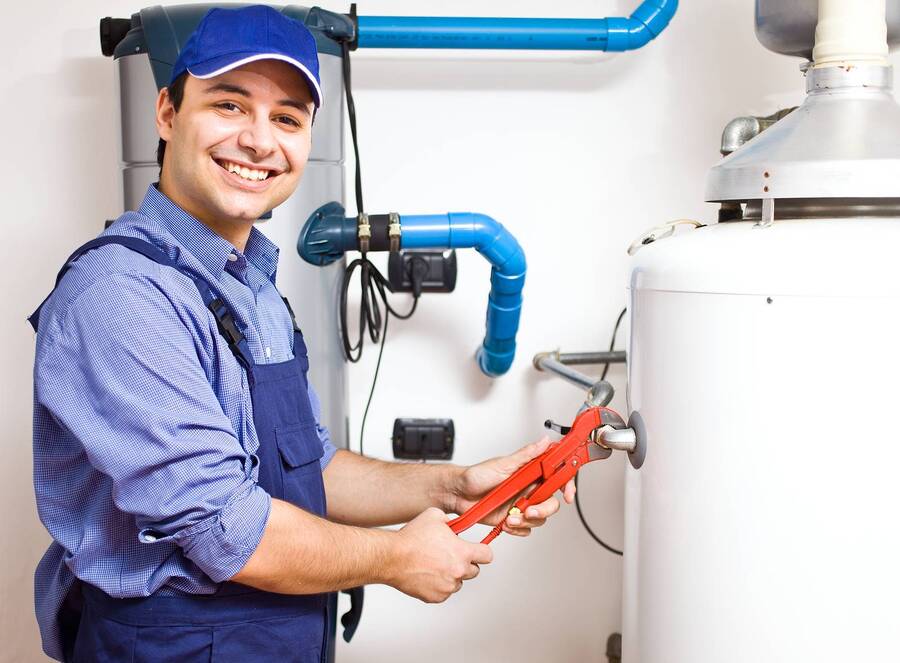Call This Wednesday to Get $50 OFF
Call us today
214-943-2424

Water heaters are built to last. Some can run efficiently for a dozen years while others might even make it to two decades, but there’s no guarantee yours will last that long – or that short. There are several factors at play when it comes to the life expectancy of your water heater.
With proper maintenance, timely repairs, and mindful usage, you can extend the lifespan of your unit and avoid unexpected breakdowns. If you really want to push the limits, an upgrade might be the best move in the long run.
In this brief article brought to you by the plumbing repair service professionals at Mr. Rooter Plumbing, we offer our two cents on how to maximize the life of your water heater. If you’d rather consult a local plumber, then call or message Mr. Rooter today.
The constant heating and cooling of water takes a toll on the tank and its components. Moreover, sediment buildup, corrosion, and wear and tear on parts like the anode rod and heating elements can all contribute to a water heater’s eventual decline.
The good news is that, with a little TLC, you can slow down the aging process and keep your water heater running smoothly for years to come.
Sediment buildup is one of the biggest threats. Over time, minerals in the water settle at the bottom of the tank, thereby reducing the unit’s efficiency and even causing corrosion. Luckily,flushing the tank once or twice a year can remove most of this sediment and keep your water heater running efficiently.
Metals corrode. It’s physics – and manufacturers are well aware. This is why water heater producers include an anode rod in the water heater tank.
The anode rod is a sacrificial component that attracts corrosive elements in the water. Over time, the rod wears out and needs to be replaced. Inspect it annually and replace it if it’s heavily corroded. This simple step can add years to your water heater’s life.
Cranking up the thermostat is not going to make the water heat up any faster. You’ll just end up with scalding hot water. Plus, setting your water heater’s temperature too high can accelerate wear and tear.
The U.S. Department of Energy recommends a setting of 120°F (49°C) for optimal efficiency and longevity. Not only does this reduce strain on your water heater, but it’ll also lower your energy bills and reduce the risk of scalding.
Insulating your water heater tank and pipes can help reduce heat loss. This helps make your system more efficient and reduce the overall workload. That translates into better heating, energy savings, and a longer lasting water heater.
You can find pre-cut insulation jackets at most hardware stores, and pipe insulation is an easy DIY project. You can always call Mr. Rooter if you’d rather have a plumber in Grand Prairie, TX properly insulate the pipes and tank.
Plumbing damage is not like a flesh wound; wounds may heal with time, but water leaks are only going to get worse. Don’t wait for a leak to turn into a burst pipe or destroyed water heater tank. Arrange water heater repair before disaster strikes, or before it permanently affects your water heater.
Whether your water heater needs some maintenance, a timely repair, or an overdue upgrade, the experienced plumbers at Mr. Rooter are here to help. Call or message us at any time of the day to get in touch with a member of our team. Or local team of plumbers is ready to help today.
Replacing a toilet sounds simple at first. You shut off the water, remove the old…
Read MoreWhen most people hear the words pipe repair, they picture broken…
Read MoreThe sewer line is a core part of any habitable property, but they're out of…
Read MoreGarbage disposals are designed to make kitchen cleanup easier, not to handle everything that comes…
Read MoreThere’s nothing quite as frustrating as trying to rinse vegetables or wash dishes only to…
Read More